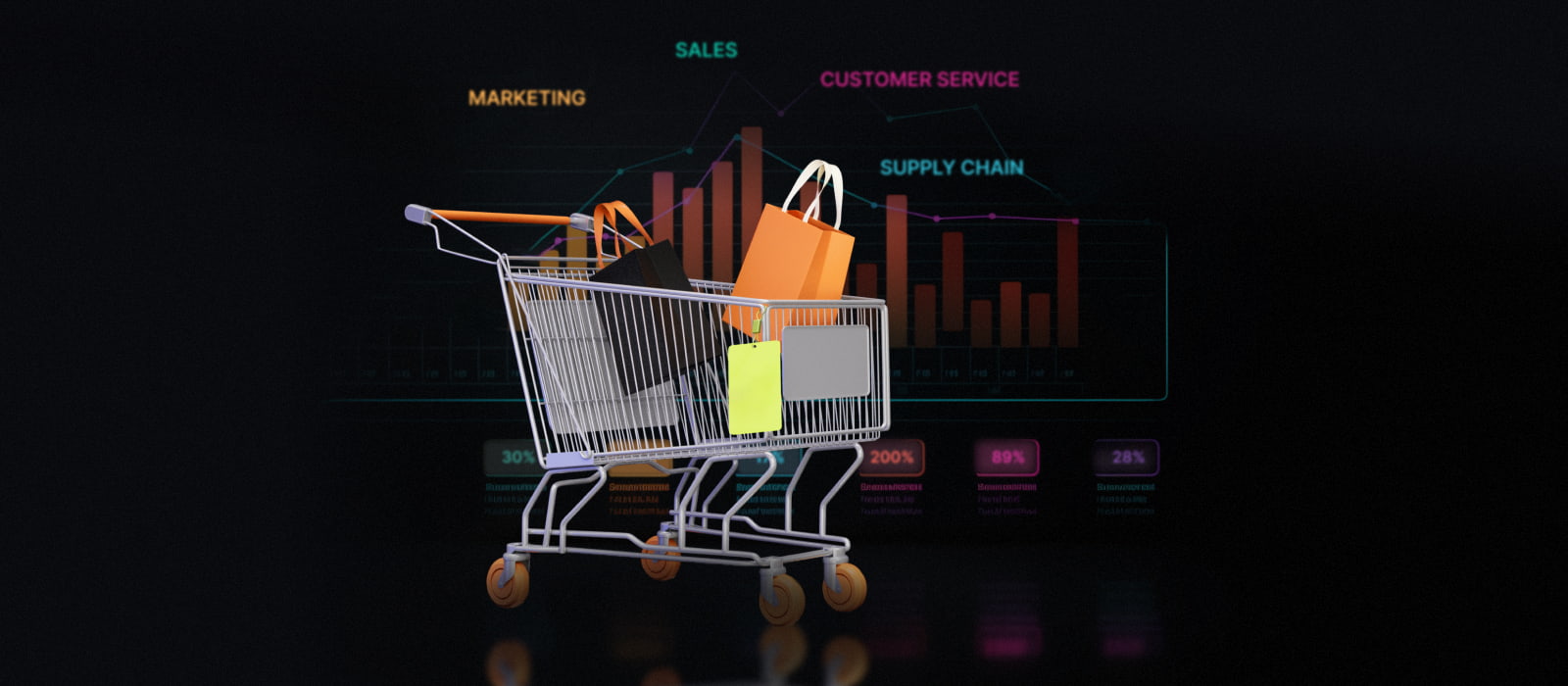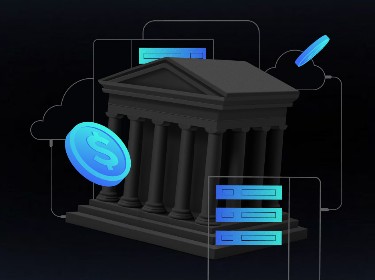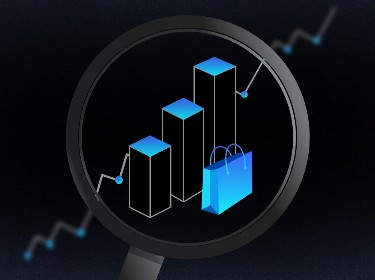Business intelligence in retail has the potential to transform the industry and optimize its many workflows. Yet, the challenge lies in using retail BI effectively to fully exploit its revolutionary potential.
Poor operational efficiency and performance, unreliable and non-actionable insights, inefficient resource allocation, and dissatisfied customers are some of the universal challenges retail businesses face globally, irrespective of their size and product details.
Fortunately, we live in a technology-driven era where it is possible to address these and many other obstacles and clear the path to success.
While numerous retailers have embraced artificial intelligence and blockchain technology developments for their transformative effects, many still undervalue retail business intelligence, which equally possesses the capability to elevate retailers to unprecedented heights and boost their performance.
Read on to learn more about business intelligence in retail software development services, their advantages, use cases, and applications, and discover top tips on how to implement retail BI for enduring success.
What is retail business intelligence and why is it important?
Retail business intelligence equips retailers with the capability to analyze extensive datasets that include sales transactions, customer interactions, inventory changes, and prevailing market dynamics.
Retailers need these insights to boost customer satisfaction, refine retail operations, and create an atmosphere that is data-driven and customer-centric.
Retail business intelligence, thus, becomes an integral component in a retailer’s strategic arsenal as it offers a perspective for thoroughly understanding their operational terrain and market conditions.
How does retail business intelligence work?
Retail business intelligence employs a meticulous process integrating data mining to uncover hidden patterns, statistical analysis to decipher these patterns, and predictive analytics services for forecasting future trends.
Data visualization tools, enhanced by intuitive dashboards and detailed reports, are also vital in transforming complex datasets into understandable and actionable insights.
Apart from this, the process gives priority to stringent data quality measures, seamless integration techniques, and robust governance policies, all of which are important for ensuring the precision and reliability of the derived insights.
Discover how our professional data visualization services and solutions can transform your raw data into engaging and informative visual representations
What are the 6 main benefits of retail business intelligence?
![]()
Implementing business intelligence in retail workflows leads to deeper customer insights, streamlined operational efficiency, significant cost reduction, increased profitability, boosted employee productivity, advanced competitive intelligence, and strengthened crisis management and resilience. It also helps to address the challenges associated with digital transformation in retail.
1. Deeper customer insights
Retail business intelligence assists in analyzing customer data and illuminating their preferences and buying patterns. These insights equip retailers to anticipate customer desires, assess customer sentiments, and uncover new opportunities for upselling and cross-selling.
Retailers use this knowledge then to fine-tune their product offerings and marketing strategies while aligning them closely with customer preferences. This results in higher customer satisfaction and fosters loyalty.
For example, personalized recommendations and targeted promotions delivered through mobile apps developed by custom mobile app development services for the retail and eCommerce industry can significantly enhance customer engagement and drive sales.
2. Streamlined operational efficiency
Streamlined workflows are one of the key benefits that companies can gain by implementing business intelligence in retail.
Analyzing sales data, inventory levels, and supply chain operations helps identify inefficiencies and bottlenecks. With this information at hand, retailers can then optimize stock levels, reduce excess inventory, and improve supply chain processes.
As a result, boosted operational efficiency reduces costs and ensures that products meet consumer demand more effectively, which in the long run benefits both the retailer and the customer.
3. Significant cost reduction and profitability enhancement
Retail business intelligence identifies opportunities for reducing costs without sacrificing quality or customer satisfaction.
Examining operational and transactional data via retail business intelligence reveals inefficiencies in the supply chain, unnecessary overhead, and automation possibilities to save on labor costs. Initiatives targeting these insights reduce expenses, improve margins, and enhance overall profitability, which translates into a healthier financial state for the retailer.
4. Boosted employee productivity
Monitoring and analyzing employee performance through retail BI tools highlight areas for enhancement and recognize their achievements. Besides, insights into workforce dynamics and productivity trends inform training programs, staffing optimization, and employee engagement strategies.
Improved staff productivity enhances the company’s overall productivity and elevates the customer experience through employees’ superior service.
5. Advanced competitive intelligence
Analyzing competitor strategies, pricing, product offerings, and market positioning becomes streamlined with retail business intelligence, too.
Retailers benchmark their performance, pinpoint differentiation opportunities, and guide strategic decisions on market entry, product development, and promotions.
Informed about the competitive landscape, retailers can anticipate market shifts and adapt their strategies to maintain a competitive edge.
6. Strengthened crisis management and resilience building
In times of crisis, retail business intelligence provides the insights needed for adequate management and resilience building.
Businesses can assess the impact of external shocks on their operations and customer behavior, which allows them to do a full 180 and adapt strategies accordingly.
The ability to navigate through crises with informed decision-making supports business continuity, minimizes losses, and prepares the retailer for future challenges.
Not only business intelligence: see how your business stands to benefit from our expert big data consulting and engineering services
What are the 12 main applications and use cases of retail business intelligence?
![]()
Retail business intelligence can be successfully applied in a wide range of retail workflows and contexts.
Our IT consulting team shortlisted the top 12 retail business intelligence use cases and applications.
1. Market trend identification
The retail landscape is ever-changing, with consumer preferences and market trends constantly evolving. Therefore, staying attuned to market trends helps retailers maintain relevance and competitiveness.
Retail business intelligence is pivotal in this regard as it empowers retailers to keep abreast of these tendencies and sentiments by delving into market data and identifying emerging and top trends.
Armed with this knowledge of market dynamics, retailers will be able to adjust their strategies accordingly, introduce new products and services or improve the existing ones, and enter or exit markets with timing that aligns with consumer demand.
2. Retail risk management
Risk management in retail business intelligence concentrates on mitigating financial risks, stabilizing supply chain operations, and adapting to shifts in consumer behavior.
Incorporating business intelligence in retail risk management allows businesses to delve into market trends, consumer purchasing patterns, and competitive analysis, which are fundamental for anticipating challenges and devising new strategies.
Through this informed strategic planning, retailers can better navigate adverse conditions and secure the long-term sustainability of their operations.
3. Strategic expansion planning
For retailers looking to expand, business intelligence tools provide invaluable insights into where and how to grow.
The examination of demographic data, consumer trends, and competitive landscapes aids in identifying lucrative markets and understanding the feasibility of different expansion strategies.
As well as this, retailers can evaluate potential store locations, eCommerce expansion opportunities, or product line extensions.
Thereby, strategic planning supported by retail business intelligence insights leads to more successful expansion efforts, optimizes investment, and even maximizes returns.
4. Inventory optimization
Retail business intelligence enables precise control over inventory by perusing sales patterns, seasonal trends, supplier lead times, and other related data.
Thanks to this capability, retailers stand to achieve optimal inventory levels, avoid overstocking or stockouts, and ensure that their capital is not tied up unnecessarily.
Plus, a dynamic inventory system that aligns supply with demand minimizes waste and bolsters sales opportunities, thus fostering a balance between product availability and financial efficiency.
5. Sales performance enhancement
Detailed analysis of sales data pinpoints high-performing products and categories as well as areas that are in dire need of improvement.
Based on this information, retailers can refine their sales strategies, concentrating on profitable products and creating promotions for slower-moving items.
Apart from this, tracking sales trends over time aids in forecasting and planning for future sales cycles and directly contributes to revenue growth and market share expansion.
6. Regulatory compliance and reporting
Retail business intelligence simplifies regulatory compliance and reporting through automated data collection and analysis.
Accurate, up-to-date information ensures adherence to industry standards and legal requirements, which makes report generation and audits quick and reduces the risk of non-compliance penalties.
Such a high level of diligence enhances the retailer’s reputation for reliability and integrity and reinforces its standing in the market.
7. Supply chain visibility
Retail business intelligence illuminates the intricacies of supply chain operations. It provides enhanced visibility into the entire range of associated processes, which includes everything from procurement to delivery.
Improved visibility aids in the identification of inefficiencies, the optimization of logistics, and the assurance of timely product availability. Plus, it fosters a more resilient supply chain that is capable of swiftly adapting to disruptions.
Explore how the PixelPlex team developed this digital twin-powered smart warehouse automation system for a retail business
8. Market expansion and diversification
With the help of retail business intelligence, companies can perform demographic and market data analysis to pinpoint new geographic areas for expansion.
Making strategic decisions based on accurate and dependable insights can result in successful market entry and the introduction of products that resonate with target customers.
9. Product development and innovation
Retail business intelligence profoundly influences product development, too.
Retailers using business intelligence gather essential insights into consumer preferences and market trends. They apply this knowledge for custom software development solutions that resonate with customer requirements and tastes.
Moreover, companies that use retail business intelligence often become leaders in setting market trends. Their products satisfy current demands and also predict future trends, which helps establish their reputation as innovators within the retail industry.
10. Customer journey mapping
Understanding the complete customer journey, from awareness to purchase and beyond, is made possible with retail business intelligence.
Retailers have the ability to examine the journeys of their customers, pinpoint the touchpoints that impact purchase decisions, and refine interactions at every stage of the customer journey.
Gaining an understanding of the customer journey allows for the creation of tailored experiences, the enhancement of customer satisfaction, and a boost in customer loyalty.
Ensure you check out our extensive guide on how to develop advanced customer churn prediction software
11. Strategic pricing optimization
A thorough analysis powered by retail business intelligence, which includes understanding competitor pricing, customer price sensitivity, and market conditions, empowers retailers to establish prices that enhance profitability and maintain their competitiveness.
What’s more, strategic pricing contributes to optimizing profit margins by adjusting prices in accordance with market trends and customer expectations.
12. Sales analytics for product strategy
Retail business intelligence uses sales data analytics services to analyze performance across products, categories, and regions. This is needed to identify top-performing items and underachievers and guide inventory and marketing decisions.
Retailers can then adjust their tactics to match consumer demand and streamline product assortments and promotions. Beyond this, insights into seasonal trends and buyer behavior help refine planning and enhance revenue potential.
7 aspects to consider when implementing business intelligence in retail workflows
![]()
Let’s take a closer look at the top 7 vital aspects to consider when integrating retail business intelligence into your operations.
1. Tool selection matters
Selecting the right tools forms the basis for an effective business intelligence solution.
Retailers need to evaluate various business intelligence tools and platforms, considering how well they fit with their current infrastructure, the complexity of data management they offer, and their ability to scale for future needs. Besides, the choice needs to be in line with the technological environment of the retailer and the abilities of its workforce.
2. Data quality holds paramount importance
To derive actionable insights from retail business intelligence, high-quality and consistent data is essential. Considering this, businesses need viable strategies in place for data cleansing, validation, and standardization to maintain the integrity of their BI outputs.
3. Staff proficiency in BI is essential
When staff are equipped with the needed skills, they can fully utilize the capabilities of BI. Therefore, retailers ought to allocate resources to training programs that improve their team’s analytical abilities and knowledge of BI technologies.
Furthermore, as BI technologies in the retail sector progress, the skills of the users must keep pace, too. A dedication to continuous training and development is key to ensuring that staff stay adept in the most recent BI tools and methods, which in turn maximizes the benefits gained from investments in retail business intelligence.
4. Integration ensures cohesion
A comprehensive view of operations and enhanced insight depth and precision result from smooth BI integration.
Thus, it is crucial to integrate retail business intelligence seamlessly with existing retail systems, such as inventory management, customer relationship management, and point-of-sale systems.
5. Data governance defines success
Businesses need to set up a solid data governance framework and choose the best strategies for data governance as this ensures proper management of data access, usage, and security within the BI system.
6. Security measures are non-negotiable
To safeguard the retail business intelligence system from unauthorized access and cyber threats, it is worth embracing strong security measures. These include encryption, access controls, and conducting regular audits.
7. Performance metrics guide optimization
To measure the impact and effectiveness of retail business intelligence, companies need to establish key performance indicators.
Regularly reviewing these metrics helps identify opportunities for optimization and ensures the BI system continues to meet the needs and demands of the business and its customers.
And remember the importance of data storytelling. Discover why it is crucial for your business's success in our comprehensive blog guide
How PixelPlex can help
Retail business intelligence provides companies with the capability to decipher and make sense of the vast amounts of data that the modern market generates. Besides, BI makes it possible to tap into in-depth insights regarding consumer preferences, operational efficiencies, and emerging market trends and pave the way for informed decision-making and robust growth.
The journey towards implementing retail business intelligence, though, involves careful consideration of tool selection, data integrity, enhancing staff capabilities, and ensuring seamless system integration.
PixelPlex steps in as your guide in this transformative journey with a comprehensive array of business intelligence services including:
- Business intelligence consulting
- Development of bespoke BI solutions
- BI customization and meticulous integration
- Data science engineering services
We encourage you to contact our knowledgeable and friendly business intelligence team to discover the possibilities of our BI services and collaborate with us in transforming the future of your retail operations.




